Best Flowers for a Romantic Garden
Primary Image
Caption
Bleeding Heart (Lamprocapnos spectabilis)
Create a Romantic Garden | 12 Plant Ideas
For daily wit & wisdom, sign up for the Almanac newsletter.
Body
Create a romantic garden this year! Like love itself, a romantic garden benefits from harmonious plantings, lovely scents, and picturesque plants. Here are tips plus a list of flowers which touch our hearts, celebrate love, or symbolize undying affection. In the garden, love is in the air!
Advertisement
Flowers of Attraction
Mark the entrance of the romance garden with an arch of aromatic roses, the symbol of love. There are many varieties to choose from, but try one of these:
- ‘New Dawn’ (introduced in 1930; Zones 4 to 9) flaunts cascades of semidouble, 3-inch, soft-pink blossoms scented with the fragrance of sweet apples.
- Bourbon ‘Madame Isaac Pereire’ (1881; Zones 5 to 9) is said to be the most fragrant rose ever hybridized. Its perfume is matched only by its beauty, vigor, and repeat blooms—rich, deep-pink, cuplike blossoms. Both plants can be trained as climbers, and they insist on 6 or more hours of sun, ample water, and attentive pruning.
See your plant hardiness zone.

Flowers of Seduction
- In spring, daffodils (Zones 2 to 8) trumpet nature’s reawakening, and our spirits soar in celebration. Welcome the season with these hardy perennials.
- The utterly charming bleeding heart (shown at the top of this page) was called the finest hardy plant of the 19th century. Even today, nothing surpasses its graceful, arching, 3-foot stems hung with its flowers of dangling pink (or white) hearts. Depend on it to be hardy (Zones 3 to 9) and enduring when rooted in a shady space. Also known as lady’s locket, lady’s heart, and lyre flower, this romantic can keep a secret. Bend back a little lyre-shape petal to reveal a tiny, slightly scandalous lady in the bath (another common name)!
- Little encouragement is needed to persuade clouds of sweet-scented, intensely blue forget-me-nots (Zones 5 to 9) to dance around the garden. Just 6 inches tall, this biennial shyly shows tiny, azure flowers with yellow eyes. Forget-me-nots self-seed, appear everywhere, and bloom for months. Its name comes from a tale about a 15th-century German knight. While picking these blossoms for his beloved, he fell into a river and drowned, but not before tossing his ladylove the bouquet and crying, “Vergiss mich nicht.” Ever since, forget-me-nots have been a symbol of faithfulness and enduring love.
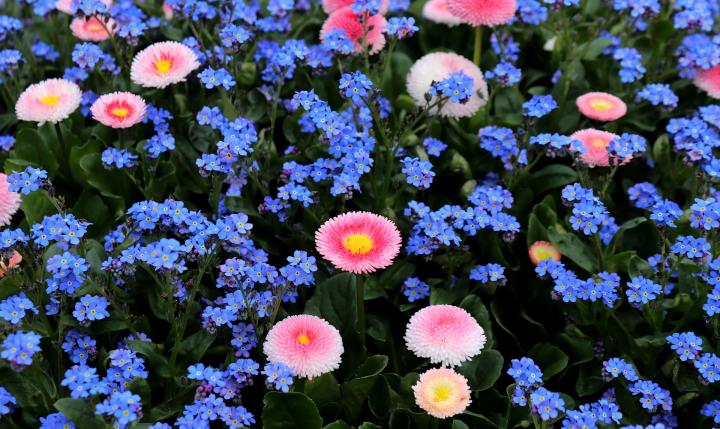
- Long-blooming, irrepressible heartsease (Zones 4 to 8), aka Johnny-jump-up, is the pansy-face garden joker. It combines yellow, purple, blue, green, and white petals with dark lines called honey guides to seduce browsing bees. It thrives from April to September in partial shade as a fragrant ground cover. Allow it to seed freely, or “jump up,” in unexpected places.

Flowers of Affection
- Essential sweet William (Zones 3 to 9) beckons with intense, spicy fragrance and bunched heads of small, fringed flowers in the full red through violet spectrum. This perennial usually blooms biennially and is the inspiration for lovelorn young Williams in English folkloric ballads.
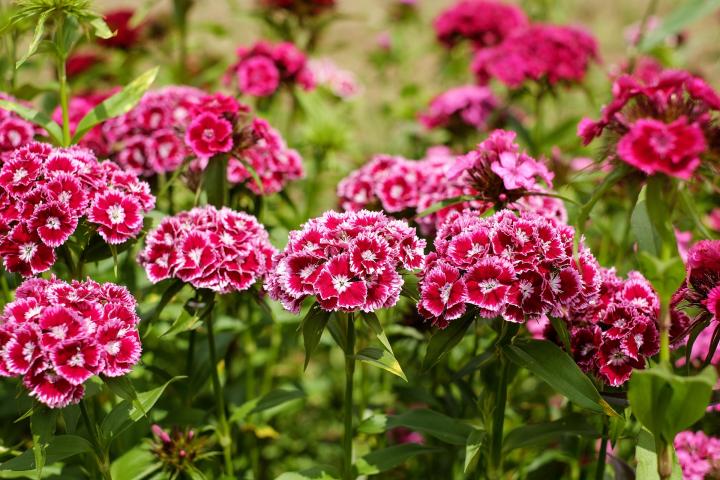
- It’s often said that a good man is hard to find. Strong evidence is the cheerful flowers that are commonly called bachelor’s buttons. Today, we usually choose the clear-blue beauties of Centaurea cyanus (aka cornflower) to tuck into a man’s buttonhole. This hardy annual self-seeds and is beloved by birds, especially goldfinches. It’s a sometimes-double, sometimes-fragrant annual of an irresistible dark blue with inner violet-blue florets.
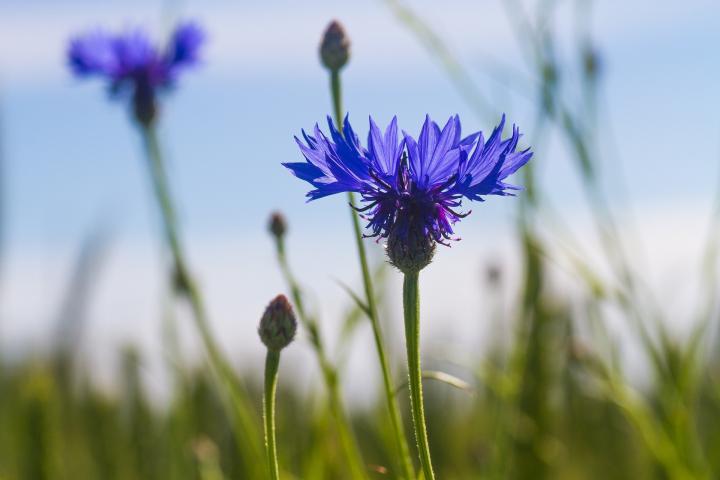
Flowers of Passion
Affection flares into passion amid beauty and fragrance, just as these romantic annuals intrigue us with their names and delight us with their flowers.
- Kiss-me-over-the-garden-gate is not shy. This lusty annual (Persicaria) easily grows to 4 feet tall and nearly as wide in one season. Multi-branched, it bears nodding, 2-inch panicles of tiny rose-red or white flowers by midsummer—a charmer when draped over a white picket fence. This perennial looks especially pretty with blue coneflowers (listed above)
Note: It reseeds promiscuously, tossing kisses in every direction, so take care to avoid invasiveness.

- Love-lies-bleeding is another dramatic romantic. Also called tassel flower, it stands 5 feet tall and flaunts footlong crimson pendant tassels of tiny flowers, followed by slightly paler seed heads and, in fall, blood-red foliage. To harvest its wholesome, edible grain, grow it in full sun.
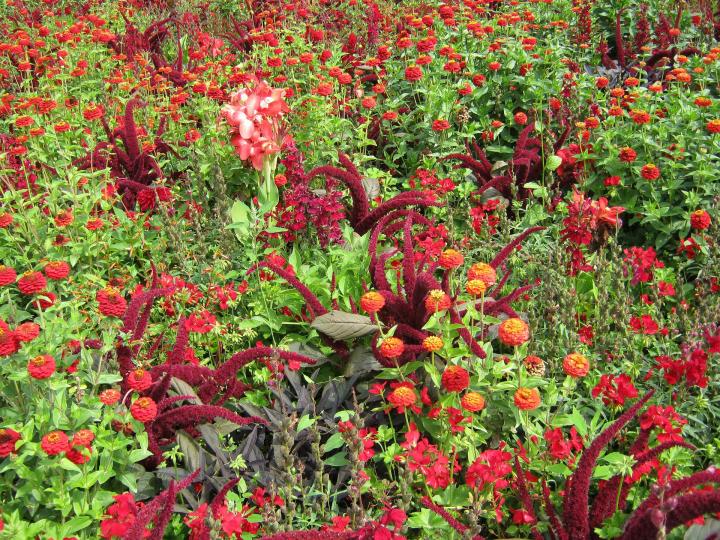
- Almost as sensuous is the alien-looking annual love-in-a-mist. Its common name refers to the hairlike anthers that surround its jewel-tone blue, pink, or white blossoms. Erect but sprawling, love-in-a-mist has hairy stems and spidery foliage that complements broad-leaf plants. Tap-rooted, it resents resettlement, self-sows freely but not aggressively, and develops captivating seed heads.
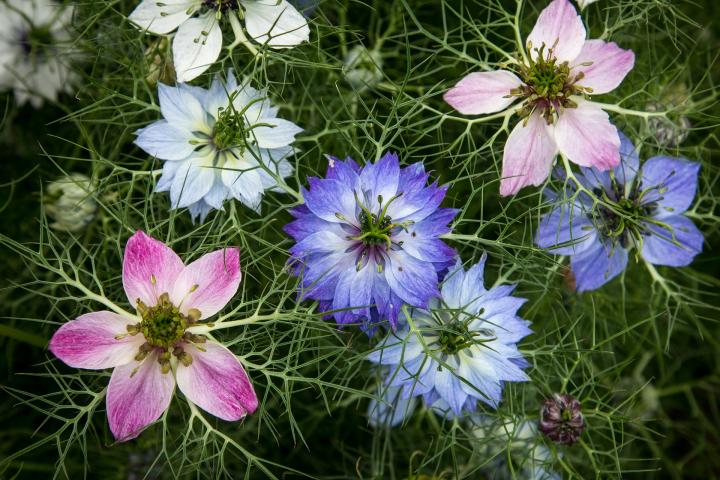
Flowers of Love, at Last
For some romances, the end is the beginning, and so it is here.
- Create a focal point and destination at the end of this garden with a bench set amidst flowers.
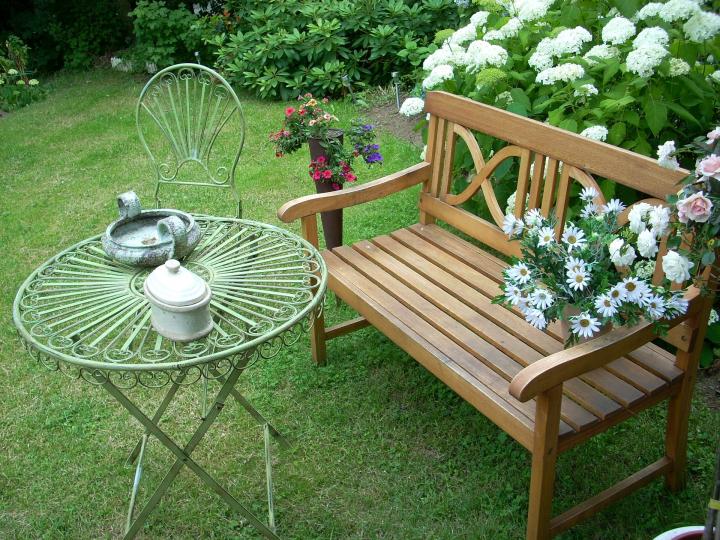
- Consider growing bridalwreath (Zones 5 to 8). Old-fashioned bridalwreath can reach 6 feet in height (without support) in fountainlike form. Its slender, arching branches, laden with snowy sprays of double white flowers, demand to be fashioned into wedding veils—but be quick, for the blossoms fall, usually within weeks, especially in a warm spring. Its leaves are ovate and fine-tooth and its scent alluring, mild, and summery.
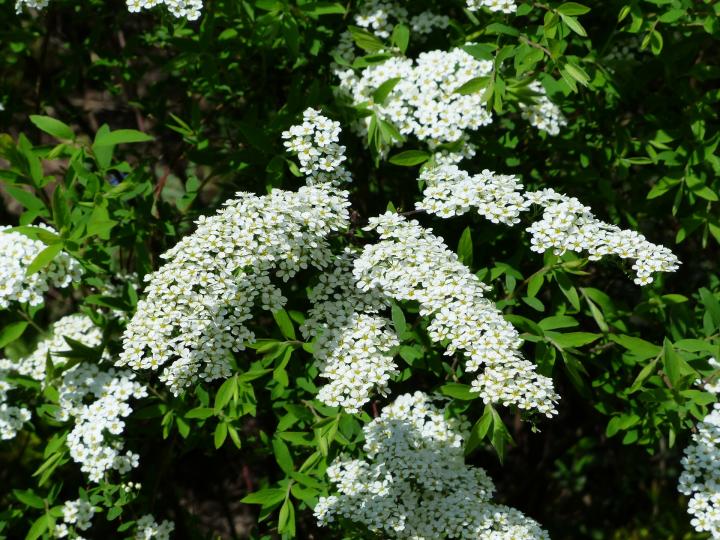
- Or, underplant this leafy canopy with fragrant sweet pea. Try ‘Pink Cupid’, which has been winning hearts since being introduced in 1895. This sun-loving antique bush variety has a mounding habit and petite presence and grows to between 6 and 8 inches tall. Expect potent fragrance from its pink-and-white flowers.
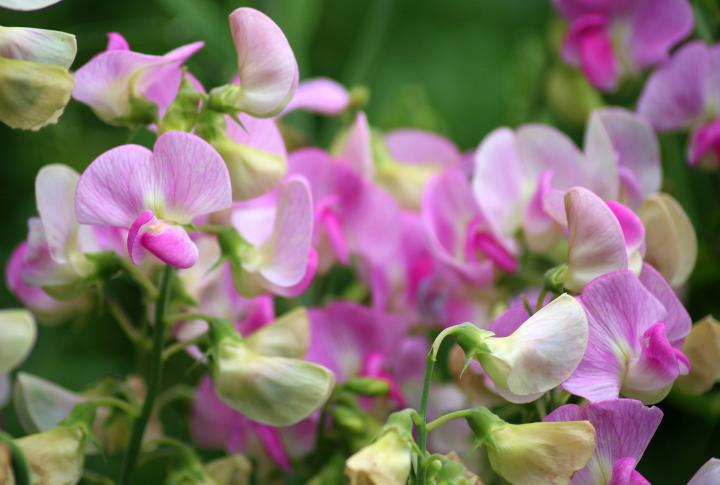
Enjoy bringing romance to your garden. Remember: a garden is a changeable, renewable paradise to stir senses and spirits and incite love for all of life. Enjoy it!
See 10 flowers with romantic names!
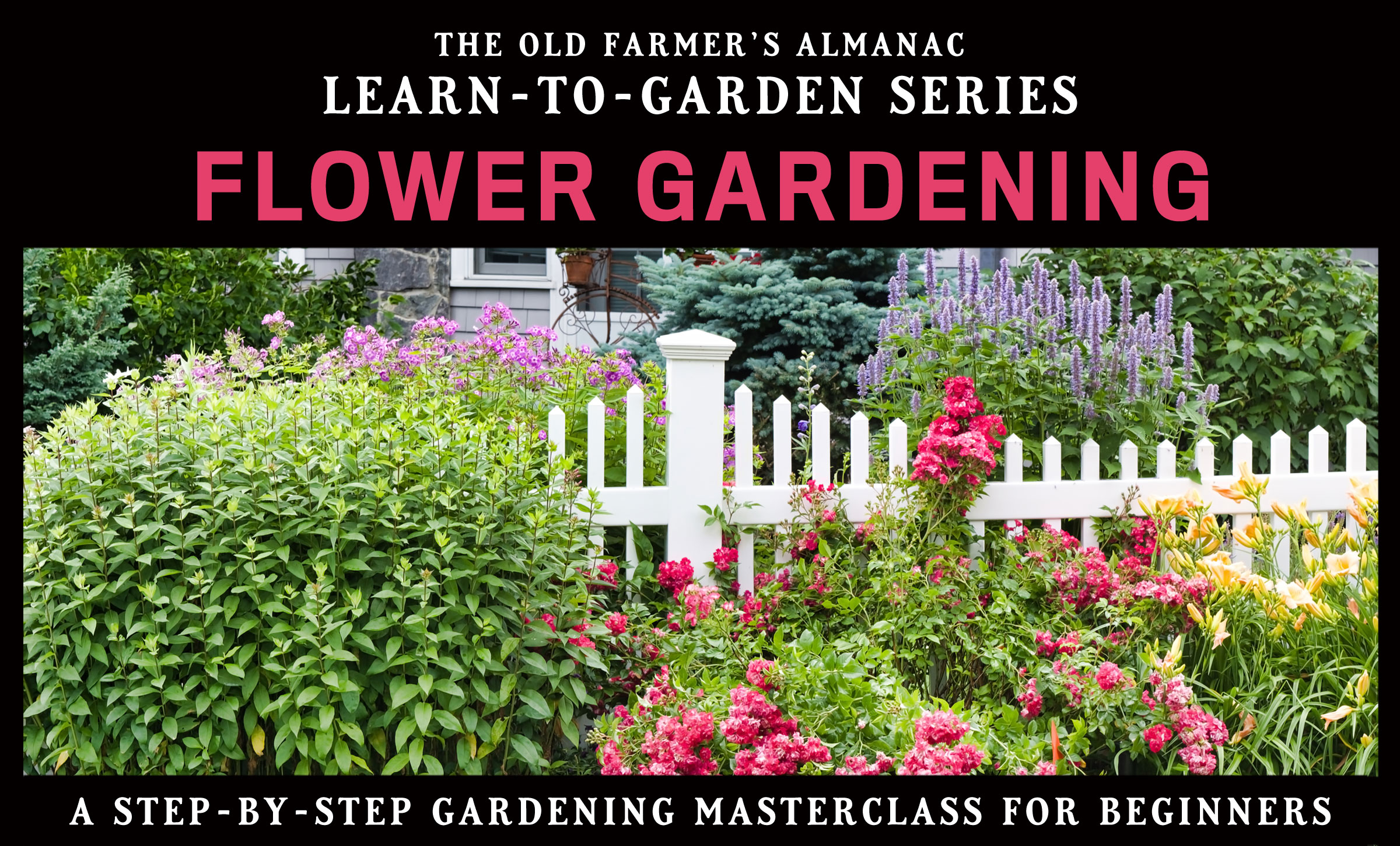
Getting Started with Flower Gardening
Building a Raised Flower Bed Garden
Flower Gardening for Pollinators
Growing Flowers in Containers
Get Almanac’s Daily Updates
BONUS: You’ll also receive our free Beginner Gardening Guide!






















Comments